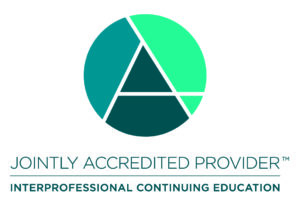Unpacking Perfectionism
Helping others and oneself with flexibility and self-compassion
About This Course
This experiential workshop will start with a concise functional contextual behavioral formulation of perfectionism and then use this as a conceptual and framework for delivering interventions with clients. You’ll learn how to conduct a functional analysis of perfectionistic behavior, how unhelpful patterns develop, and why people persist with perfectionistic behavior patterns despite long-term negative consequences.
Across four skills-based sessions, you’ll learn how to apply the techniques and metaphors from Acceptance and Commitment Therapy (ACT), mindfulness, and Compassion-Focused Therapy to address perfectionistic habits in your clients. You’ll learn how to help clients unhook from unhelpful perfectionistic behaviors, build behavioral flexibility and develop the skills of self-compassion, and in doing so, live their best (yet ‘imperfect’) lives.
Opportunities for self-reflection and the chance to practice strategies on yourself will help you develop a deeper understanding of your clients and your own unhelpful perfectionistic patterns, enhancing your own practice and wellbeing. Worksheets, activities, and mindfulness scripts will support you in putting the new skills into practice straight away.
This training is worth 8 CE credit hours if attended live. While we can only provide CE to those who are present – i.e. logged in – for live presentation(s), all Praxis webinars are recorded for later viewing. Registrants may then access these recordings at any time for up to six months from the conclusion of the training to which they pertain.
Prior to registering, please review speaker-planner conflict of interest disclosures and complete CE information.
Schedule
Session 1: October 7, 2021, 6 pm-8 pm EDT
Understanding Perfectionism from a Contextual Behavioral Perspective
Session 2: October 14, 2021, 6 pm-8 pm pm EDT
Fear of Failure & the Function of Perfectionism
Session 3: October 21, 2021, 6 pm-8 pm pm EDT
From Self-Criticism to Self-Compassion
Session 4: October 28, 2021, 6 pm-8 pm EDT
Becoming More than Perfect
Learning Objectives
Participants will be able to:
- Describe a clear and concise functional contextual behavioral formulation of helpful and unhelpful perfectionism.
- Identify the five processes of unhelpful perfectionism.
- Apply a behavioral framework and use functional analysis to understand the development and maintenance of unhelpful perfectionistic behavior patterns.
- Identify ways to implement treatment strategies that can build psychological flexibility and self-compassion in themselves and their clients.
- Define the PotB metaphor and provide an overview of how it can be applied to perfectionistic self-criticism
- Identify the three circles of compassion-focused therapy and discuss how it can be applied in session
Continuing Education
Please review complete CE and conflict-of-interest disclosure information prior to registering. This live online course is sponsored by Praxis Continuing Education and Training and is approved for 8 CE Hours by the following listed below. There was no commercial support for this activity. None of the planners or presenters for this educational activity have relevant financial relationship(s) to disclose with ineligible companies whose primary business is producing, marketing, selling, re-selling, or distributing healthcare products used by or on patients.
Praxis CET maintains responsibility for the program with the CE approvals outlined below:
-
Joint Accreditation:
 In support of improving patient care, Praxis Continuing Education and Training, Inc is jointly accredited by the Accreditation Council for Continuing Medical Education (ACCME), the Accreditation Council for Pharmacy Education (ACPE), and the American Nurses Credentialing Center (ANCC), to provide continuing education for the healthcare team.
In support of improving patient care, Praxis Continuing Education and Training, Inc is jointly accredited by the Accreditation Council for Continuing Medical Education (ACCME), the Accreditation Council for Pharmacy Education (ACPE), and the American Nurses Credentialing Center (ANCC), to provide continuing education for the healthcare team. - Nursing: Praxis Continuing Education and Training, Inc designates this activity for a maximum of 8 ANCC contact hours.
- Physicians: Praxis Continuing Education and Training, Inc designates this live internet activity for a maximum of 8 AMA PRA Category 1 Credits™. Physicians should claim only the credit commensurate with the extent of their participation in the activity.
-
Psychologists:
 Continuing Education (CE) credits for psychologists are provided through the co-sponsorship of the American Psychological Association (APA) Office of Continuing Education in Psychology (CEP). The APA CEP Office maintains responsibly for the content of the programs.
Continuing Education (CE) credits for psychologists are provided through the co-sponsorship of the American Psychological Association (APA) Office of Continuing Education in Psychology (CEP). The APA CEP Office maintains responsibly for the content of the programs. - Social Workers: As a Jointly Accredited Organization, Praxis Continuing Education and Training, Inc is approved to offer social work continuing education by the Association of Social Work Boards (ASWB) Approved Continuing Education (ACE) program. Organizations, not individual courses, are approved under this program. State and provincial regulatory boards have the final authority to determine whether an individual course may be accepted for continuing education credit. Praxis Continuing Education and Training, Inc maintains responsibility for this course. Social workers completing this course receive 8 clinical continuing education credits.
- Drug and Alcohol Counselors:This course has been approved by Praxis Continuing Education and Training, Inc, as a NAADAC Approved Education Provider, for 8 CE hours. NAADAC Provider #165310, Praxis Continuing Education and Training, Inc, is responsible for all aspects of its programming.
-
National Counselors:
 Praxis Continuing Education and Training, Inc. has been approved by NBCC as an Approved Continuing Education Provider, ACEP No. 6759. Programs that do not qualify for NBCC credit are clearly identified. Praxis Continuing Education and Training, Inc. is solely responsible for all aspects of the programs.
Praxis Continuing Education and Training, Inc. has been approved by NBCC as an Approved Continuing Education Provider, ACEP No. 6759. Programs that do not qualify for NBCC credit are clearly identified. Praxis Continuing Education and Training, Inc. is solely responsible for all aspects of the programs. - NY Social Workers:Praxis Continuing Education and Training, Inc is recognized by the New York State Education Department’s State Board for Social Work as an approved provider of continuing education for licensed social workers #SW-0467
- NY Counselors:Praxis Continuing Education and Training, Inc. is recognized by the New York State Education Department’s State Board for Mental Health Practitioners as an approved provider of continuing education for licensed mental health counselors. #MHC-0198.
- NY Psychologists:Praxis Continuing Education and Training, Inc. is recognized by the New York State Education Department’s State Board for Psychology as an approved provider of continuing education for licensed psychologists #PSY-0002.
Prerequisites
Audience
Recommended Reading
None
References
Deutsch, C. J. 1984. “Self-reported sources of stress among psychotherapists.” Professional Psychology: Research and Practice 15(6):833-845.
Egan, S. J., T. Wade, and R. Shafran. 2012. “The transdiagnostic process of perfectionism.” Spanish Journal of Clinical Psychology 17(3):279-294.
Ferrari, M., K. Yap, N. Scott, D. A. Einstein, and J. Ciarrochi. 2018. “Self-compassion moderates the perfectionism and depression link in both adolescence and adulthood.” PLOS ONE 13(2):e0192022.
Hill, A. P., and T. Curran. 2016. “Multidimensional perfectionism and burnout: A meta-analysis.” Personality and Social Psychology Review 20(3):269-288.
O’Neill, L., G. Latchford, L. M. McCracken, and C. D. Graham. 2019. “The development of the Acceptance and Commitment Therapy Fidelity Measure (ACT-FM): A delphi study and field test.” Journal of Contextual Behavioral Science.
Ong, C. W., J. L. Barney, T. S. Barrett, E. B. Lee, M. E. Levin, and M. P. Twohig. 2019. “The role of psychological inflexibility and self-compassion in acceptance and commitment therapy for clinical perfectionism.” Journal of Contextual Behavioral Science 13:7-16.
Ong, C., E. Lee, J. Krafft, C. Terry, T. Barrett, M. Levin, and M. Twohig. 2019. “A randomized controlled trial of acceptance and commitment therapy for clinical perfectionism.” Journal of Obsessive-Compulsive and Related Disorders 22:100444.
Refund and Cancellation Policy
We understand, sometimes things come up!
Praxis will offer a full refund to registrants of both live and live-online trainings who cancel their registration prior to 14 days before an event/course. If a registrant would like to cancel their registration within 14 days of the event, no refund will be offered. However, the registrant can elect to receive a credit to be used toward another Praxis event within 1 calendar year.
